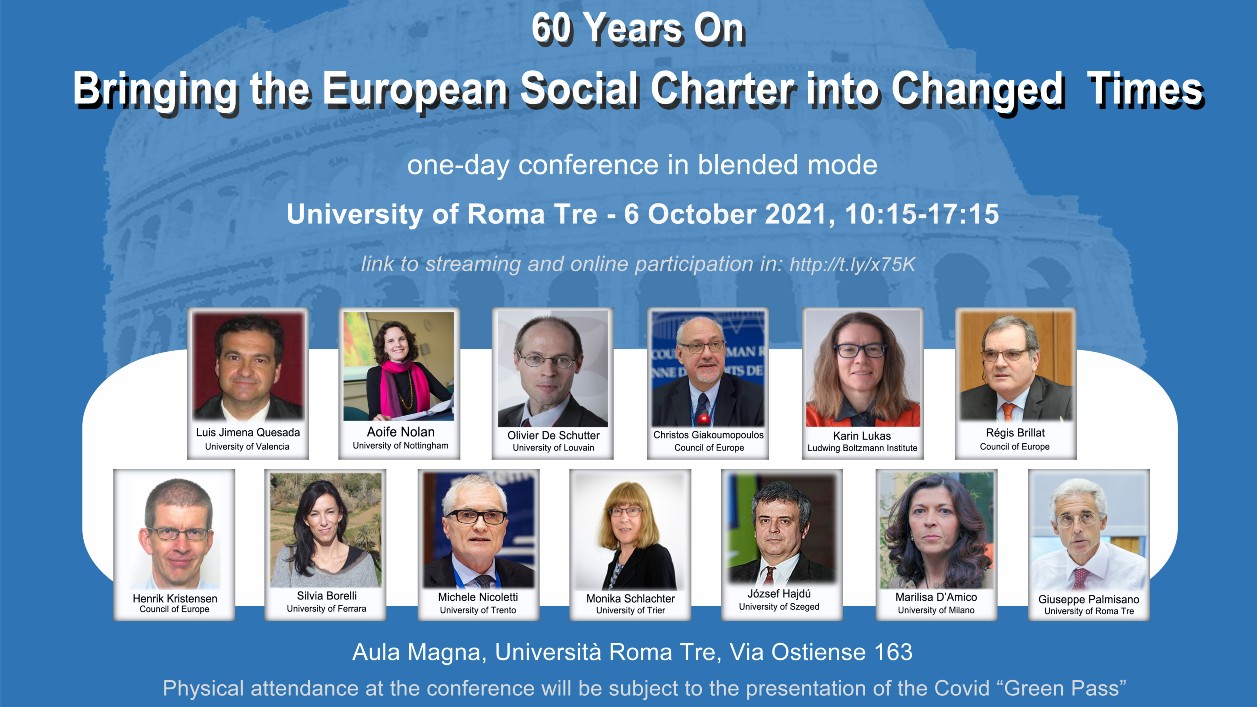The University of Roma Tre (Department of Law, Roma Tre International Centre for Research "Diritto e Globalizzazione") together with the University of Nottingham Human Rights Law Centre, and with the support of the Department of the European Social Charter of the Council of Europe, are organising a one-day conference to mark the 60th anniversary of the European Social Charter.
The conference will provide an opportunity for academics, representatives of international organisations, civil society to discuss current issues such as labour rights in the era of gig economy and digitisation, migrants’ rights, the right to sustainable environment or how to reinforce the European Social Charter system and its relevance in Europe.
Featuring expert speakers (academics, current and former members of the European Committee of Social Rights, high-level representatives of the Council of Europe), the conference will focus on “bringing the European Social Charter into changed times”.
Date: 6 October 2021
Location: University of Roma Tre (Aula Magna), Rome, Italy (10:15-17:15 CET)
Organisers: University of Roma Tre (Department of Law, Roma Tre International Centre for Research "Diritto e Globalizzazione") and University of Nottingham Human Rights Law Centre, with the support of the Council of Europe Department of the European Social Charter
Livestreaming and online participation: MS Teams online event
COVID-19: Physical attendance at the conference will be subject to the presentation of a Covid-19 “Green Pass”. On-site participants are kindly requested to wear a protective mask.




